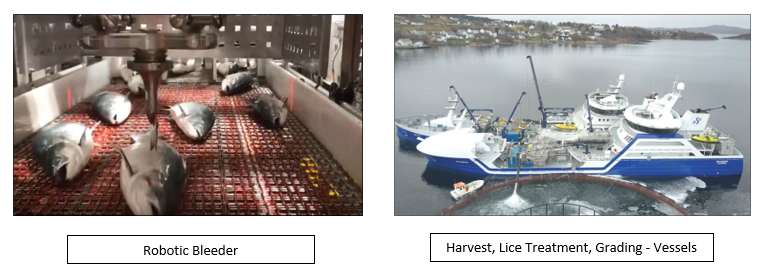FEED A GROWING WORLD POPULATION AND TREAT ANIMALS WITH RESPECT: AN OVERVIEW OF FARMED SALMON WELFARE REGULATIONS AND BEST PRACTICES, AND HOW THE INDUSTRY IS RETHINKING HARVEST AND PROCESSING
Addressing the need to feed an ever-increasing worldwide population, the aquaculture industry is poised to help . At the same time, consumers of aquaculture products are demanding that producers proactively
take measures to ensure the health and welfare of the animals grown for food consumption. While Norwegian and EU regulations require the humane treatment of animals, i t is the practices and products that flow from the regulations that have actual impact. This discussion will center on current industry best practices within farmed salmon, why industry is
willing to work with regulatory agencies and scientific organizations to create methods/equipment that focus on animal welfare , and how these best practices and methods can/should be adopted for other species .
Specifically, we will address how the industry is focusing on the issue of sea lice , why a lower-stress transport alternative to a vacuum pump was created, and w hat equipment is now considered standard for humane sedation. Additionally, we will discuss the changing dynamic of how farmed salmon is harvested and initially processed and the resulting
positive effects for the environment and the bottom line.
